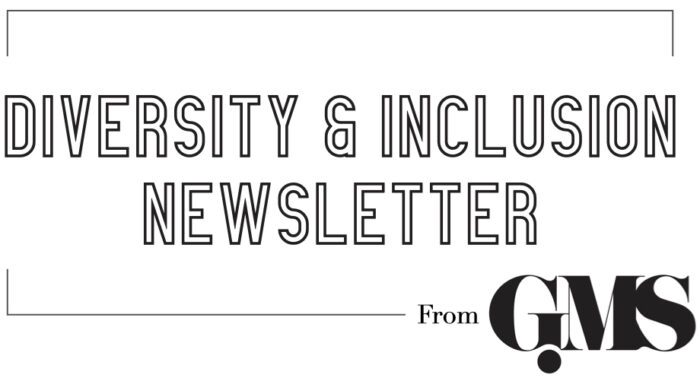By The Diversity & Inclusion Committee

This month for our newsletter we wanted to take the opportunity to reflect on the experience of parents and carers in our sector, and more widely in the music industry. It is a near-impossible balance of caregiving, long hours, evening gigs, expensive commutes and more. Moreover, the inequality gap continues to widen for anyone unable to share caregiving responsibilities, or without the funds for increasingly expensive childcare.
So what is our industry doing to make music an accessible career for anyone and everyone who wants to pursue it?
Parents in Performing Arts (PiPA) was founded in 2016 for exactly this reason. PiPA is a research-driven movement whose studies reflect that those with caring responsibilities are fundamentally disadvantaged, whilst demonstrating that integrating this segment of the workforce improves any artistic organisation’s creativity and productivity. Their research flags issues such as: money struggles for parents; careers in the arts being sacrificed; families being forced in to gender roles; an appetite for shared parental leave; as well as a lack of support and training for those who have to change roles when returning from parental leave.
It’s also a mental health issue. As I’m sure many people can relate to, PiPA’s 2021 report showed that 8 out of 10 respondents with caring responsibilities reported significant stress during the pandemic.
The parents we spoke to echo these challenges. One parent said:
“I have a 9-year-old. I pay for afterschool club until 6pm costing a parent approx. £75 per week for full time, working 10am-6pm. To do this I need to arrange for him to be collected at 6pm from someone for me to collect him from them, every day. If I work 9am – 5pm there is breakfast club, with the hope to be able to drop him and get to work on time, but also pay for teatime doubling that figure (so you better have a good paying job!).
Without private childcare (paying everything to work) a supportive network ([who] don’t have a life themselves) or a flexible workplace (one in a million, after all we chose to have kids, right?), arranging childcare as a mum with a job is another job[.] But if you don’t work you are able to access free childcare, free school meals, healthcare benefits, bills paid for, money every month, more time with your kids, less mum guilt and a network that doesn’t think you[’re] neglecting your children or taking the piss.
Working mum = “Neglectful to your kids, Needing too much at work”
Stay at home mum = “Sponging off the system, Get a job”
Either way you’re going [to] be made to feel like a waste mum, just pick your poison.”
And it’s another job that costs A LOT of money (on average, £7,000 to put a child in nursery part-time in 2022 as per statistics by charity Coram in their Childcare Survey 2022) and is increasing all the time.
This is accentuated by the fact that PiPA’s first ever benchmark report in 2018 (across the arts) shows that caring hits earning ability, with carers earning overall £3,000 less a year than non-carers.
So how can decision-makers make a difference? Certainly “flexible working” has become a popular catch-phrase, but we cannot assume that it’s a one-size fits all.
Clearly, guessing what might be useful for parents in general isn’t the answer. So let’s ask our employees, managers, interns, board members or colleagues what would be useful to them, in order to make the most informed decisions and offer truly useful flexibility.
One Sync and Music Supervisor Intern to whom we spoke said:
“In my case, working from home with a child is not a solution nor is it a sustainable option. Instead, I believe companies should look at providing services such as childcare i.e. a crèche within the workspace; financial aid for childcare, a flexible working route when returning from maternity leave, counseling, subject to what each parent requires and the company is able to provide. The postpartum recovery is a long road which needs to be acknowledged.”
Furthermore, these provisions would help parents and carers of all genders. Unfortunately, we often see maternity/paternity leave stuck in an out-dated, problematic rut. Companies either don’t provide employees with long enough leave or enough pay to be able to make it feasible, in turn perpetuating traditional gender roles and forcing a drop-off of talent after children. Often people aren’t clear about shared parental leave or what’s available to them, but even then, if you’re freelance (which includes a fair amount of our supervision sector), then currently you aren’t eligible for SPL. (Read more on Olga Fitzroy and UK Music’s campaign pre-pandemic and stay tuned for progress). Better parental leave for all can help split the caring responsibilities, allowing for more equal decisions between parents to pursue their careers as they wish.
For example we heard from a father at BMG:
“At the beginning of the year BMG introduced a new parental leave policy which I’m very proud of: all parents now get 6 months leave at full pay. This is of course brilliant for new mums but also for the other parent who will get more time with their new baby and support the mother in her career. I will be taking advantage of the policy this year and it’s been brilliant to have the full support of BMG in going on leave for 6 months as a Dad. I believe this is pretty rare in the industry (or generally) and hope it becomes more common in the future as businesses realise that it will help them retain amazing talent.”
So why don’t we see more on-site nurseries with discounted rates, or company salary sacrifice schemes, or discounted back-up childcare for a certain allocation of days per year? Sure, there would be insurance and admin to sort to set this up, but no more than what the industry is used to, running billion-dollar international businesses. Hopefully by supporting a broader spectrum of people and backgrounds to Board/Senior Management level, more organisations will start to prioritise efforts towards these solutions.
What You Can Do
If your organisation is looking to learn or provide better support, PiPA has distilled its research in to their Charter Programme and Toolkit, a framework that provides participating organisations with practical tools, resources and policies including case studies, sample budgets, guides and practical resources in order to implement family-friendly working practices.
Organisations can join the PiPA Charter Programme, which provides tools, resources and policies to start to implement family-friendly working practices.
If you or your company are interested in finding out more, visit https://pipacampaign.org/
The UK and European Guild of Music Supervisors

